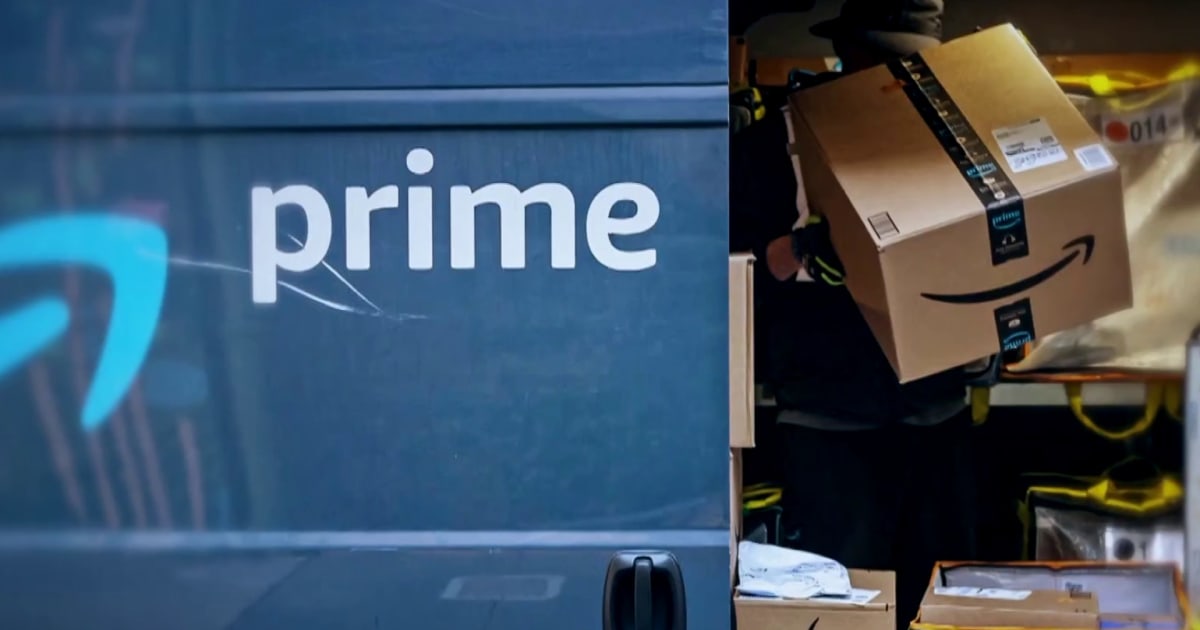Amazon Workers Consider Strike: A Holiday Disruption on the Horizon?
As the holiday season approaches, a potential strike by Amazon workers has emerged as a significant concern for both the company and its consumers. With the prospect of disruption looming, this situation raises critical questions about labor rights, corporate responsibility, and the future of employment at one of the world’s largest online retailers. This article delves into the motivations behind the workers’ considerations for a strike, the implications for consumers and the company, and the broader context of labor relations in the retail sector.
The Context of the Strike Consideration
Amazon has long been a focal point for discussions about labor practices in the gig economy and retail industries. As the company has grown exponentially, so have concerns regarding the treatment of its employees. Reports of high-pressure work environments, inadequate breaks, and stringent productivity targets have sparked criticism from labor rights advocates.
In recent months, Amazon workers at various fulfillment centers across the United States have begun organizing and discussing potential strike actions. The timing is particularly poignant as the holiday season represents the peak of online shopping, which is critical to Amazon’s business model. A strike during this period could severely impact the company’s operations and customer satisfaction.
Reasons Behind the Potential Strike
Several factors have driven Amazon employees to consider a strike:
- Wage Concerns: Many workers have expressed dissatisfaction with their wages, claiming they do not reflect the rising cost of living. With inflation affecting everyday expenses, employees are advocating for higher pay rates.
- Working Conditions: Reports of physically demanding work and inadequate safety measures have led to an increased desire for better workplace conditions. Employees are pushing for more breaks and improved safety protocols.
- Job Security: As technology continues to evolve, there are fears among workers about job security and the impact of automation on their roles. Employees are seeking assurances regarding their future employment.
- Union Representation: The desire for union representation has gained momentum among workers. They believe that collective bargaining will lead to better working conditions and pay.
Implications for Amazon
The implications of a strike could be monumental for Amazon. Disruptions during the holiday season could affect:
- Sales Revenue: The holiday season accounts for a substantial portion of Amazon’s annual revenue. A strike could lead to delays in order fulfillment, resulting in lost sales and dissatisfied customers.
- Brand Reputation: Consumer perception of Amazon is at stake. If a strike occurs, it may raise questions about the company’s commitment to employee welfare, potentially deterring customers who value ethical business practices.
- Legal and Financial Consequences: A strike could prompt legal actions, especially if Amazon is perceived as retaliating against organizing efforts. Such actions could lead to costly legal battles and settlements.
Implications for Consumers
For consumers, the ramifications of a strike could manifest in various ways:
- Delivery Delays: Customers may experience longer wait times for deliveries, particularly during the peak shopping days leading up to the holidays.
- Product Availability: Certain products may become less available if fulfillment centers are not fully operational, leading to frustration among shoppers.
- Price Increases: If operational costs rise due to a strike, Amazon may pass these costs onto consumers, resulting in higher prices for goods.
Broader Implications for Labor Relations
This situation at Amazon is not an isolated incident but rather reflects a larger trend in labor relations across various industries. The COVID-19 pandemic has prompted many workers to reevaluate their employment conditions, leading to a resurgence in labor organizing. Key points in this trend include:
- Increased Organizing Efforts: Workers across the country are increasingly seeking to unionize and advocate for their rights. The Amazon Labor Union’s victory in New York City earlier this year is a testament to this growing movement.
- Focus on Fair Labor Practices: Workers are demanding fair labor practices, including better pay, benefits, and job security. This shift reflects a growing awareness among employees of their rights and a willingness to stand up against corporate interests.
- Corporate Accountability: There is a rising expectation for corporations to be accountable for their labor practices. Consumers are becoming more conscious of where and how products are made, leading to increased scrutiny of companies like Amazon.
Concluding Thoughts
The consideration of a strike by Amazon workers as the holiday season approaches underscores a critical juncture in labor relations. While the implications for Amazon and its consumers are significant, the situation also reflects broader themes in the evolving landscape of work and employee rights. As workers continue to advocate for better conditions and pay, the outcome of this potential strike could set a precedent for labor practices across the retail sector.
Moving forward, it will be essential for both Amazon and its employees to engage in meaningful dialogue to address these concerns. The resolution of this situation could either reinforce a commitment to fair labor practices or lead to increased tensions and disruptions. How Amazon navigates this challenge will be closely watched by labor advocates, consumers, and other corporations alike.
See more Business Focus Insider Team

